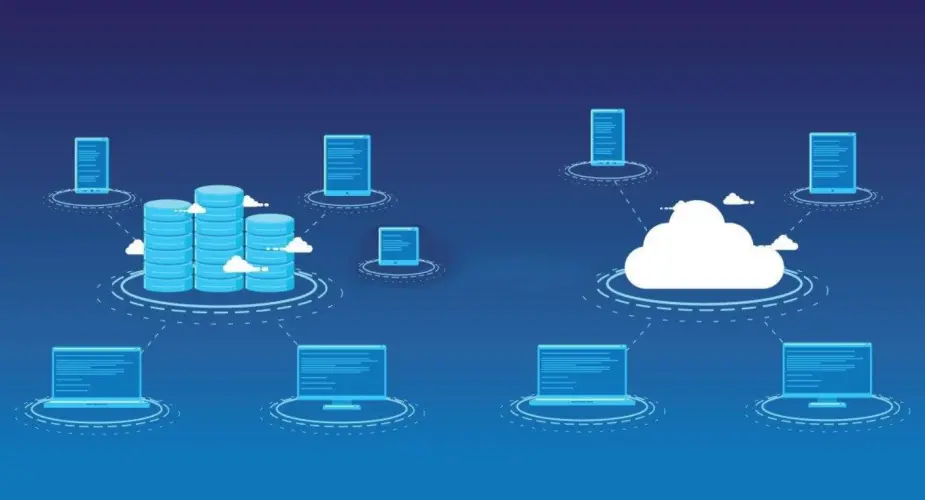Voice through Internet Protocol (VoIP) has revolutionized how businesses communicate, offering low-cost and high-quality alternatives to traditional phone systems. When it comes time to implement VoIP one of the most important issues facing businesses is deciding whether to go with cloud-based solutions or an on-premises solution. Both have advantages and disadvantages as well as the choice is contingent on the specifics of every company. This article will look at the main considerations that help decision makers navigate the process of deciding between cloud-based and on-premises VoIP solutions.
Cost Considerations
Initial Costs: One of the primary distinctions between cloud-based and on-premises VoIP solutions is their initial investments. On-premises systems typically have greater upfront costs, such as the purchase of hardware, installation and the configuration. However cloud-based VoIP solutions typically are less expensive as they make use of the infrastructure already in place.
Operational Expenses: While on-premises solutions could require substantial upfront investment but they’re more efficient over time because of lower operating costs. Cloud-based solutions, on other hand, require monthly subscription costs which may add up in time. Businesses must be aware of their budgetary limitations and long-term financial goals in order to find the most efficient solution.
Scalability
Scaling to Demand: Scalability is an important element, especially for growing companies. Cloud-based VoIP systems are known for their capacity to scale and allow organizations to add or remove users according to their changing requirements. This flexibility is particularly beneficial for businesses growing rapidly or that have seasonal fluctuations in their communication needs.
Capacity planning: On-premises solutions require careful capacity planning to allow for future growth. Businesses need to be able to predict their communication requirements and purchase additional equipment and licenses in line with. This can be a daunting task. Overestimating or underestimating the capacity could cause inefficiencies or unplanned costs.
Maintenance and Support
Responsibilities for Maintenance: VoIP systems on premises put the burden of maintenance and updates squarely upon the shoulders business. This means that they have an in-house IT department or contracting with external support to handle regular maintenance or updates as well as security patches. Cloud-based solutions transfer these duties to an outside service, allowing companies to concentrate on their main tasks.
SLAs (SLAs): When contemplating a cloud-based VoIP service is essential to review the terms of service offered by the service provider. This includes uptime guarantee as well as support response times as well as the processes for data backup and recovery. It is essential for organizations to make sure that the cloud service chosen matches their requirements for reliability and performance.
Security Concerns
Control and Ownership of Data: Security is a essential aspect for any company and the decision between cloud-based and on-premises VoIP solutions is weighing the degree of control over sensitive information. On-premises solutions give businesses complete control over their data and are a great choice for businesses with strict security and compliance needs. Cloud-based solutions are secure, but can raise questions about the control and ownership of data.
Privacy and Security: Cloud service providers generally implement security measures that are robust that include security and encryption certifications. However, businesses that operate in highly regulated fields will need to consider whether the cloud-based solutions meet their particular compliance requirements. On-premise solutions enable organizations to apply and adjust security measures to meet the specific needs of their business.
Reliability and Redundancy
Reliability and uptime: The reliability of communications systems is essential for continuous business operations. Cloud-based VoIP providers usually provide an extremely high level of uptime and reliability by utilizing redundant data centers to guarantee uninterrupted service availability. On-premise solutions, although robust, could face difficulties in achieving the same degree of redundancy with no substantial expenditure.
Disaster Recovery Recovery from disasters are an essential aspect for any system of communication. Cloud-based VoIP solutions typically have built-in disaster recovery mechanisms that guarantee the integrity of data and continuity of service even in case of failure. On-premises systems require companies to develop and implement disaster recovery plans. This can be a resource-intensive process.
Integration with Existing Systems
Compatible With Legacy Systems: Businesses typically have an existing infrastructure and old systems that require to be integrated seamlessly with the selected VoIP solution. On-premise systems permit greater customization as well as integration with internal applications, offering a custom solution. Cloud-based solutions can require companies to assess the compatibility of their systems and make investments in further integrations.
Unified Communication: the trend toward unification of communications, combining messages, video, voice and collaboration tools is leading to the necessity to integrate seamlessly. Cloud-based VoIP solutions typically come with integrated integrations to well-known collaboration software, which makes it easier for the deployment of unified communications strategies. On-premise solutions might need more work and time to reach the same level of integration.
Regulatory Compliance
Local as well as International Regulations: Different industries and regions have different rules regarding data privacy and communications services. Businesses must be aware of the regulatory environment within which they operate, and assess whether the VoIP solution is compliant with international and local standards. On-premises solutions provide greater control over compliance procedures and cloud-based providers have to comply with a wider range of regulations.
Data Residency and Sovereignty Data sovereignty and residency are crucial considerations for companies with particular requirements for the location of their data. On-premises solutions give an immediate control over data location and ensure that data residency is in line with local laws. Cloud-based solutions can require storage of data in several locations, which requires companies to verify the compliance of local laws.
Conclusion
The decision between cloud-based and on-premises VoIP systems is a complicated choice that requires an in-depth review of the various aspects. While cloud solutions offer flexibility, scalability, as well as offloaded maintenance, the on-premises options give more control over security, data and integration. In the end, the choice should coincide with the individual needs, budget restrictions and growth plans of every organization. When you carefully consider the elements mentioned in this article, companies can make a well-informed decision that will lay the foundation for reliable and effective communication systems in the modern age.







